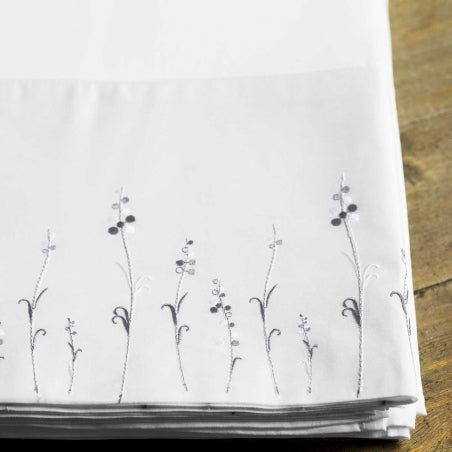Think those certified organic cotton sheets were manufactured to the same ecological standards as the cotton? OEKO-TEX ensures textile manufacturing is free from known harmful substances. Here's how it works and what to look for.

OEKO-TEX 100 is a third-party textile testing and certification system covering all stages of textile production. And just because a product may have started with quality raw materials (or even organic raw materials), it doesn't necessarily mean the product was manufactured to the same principles.
This why the OEKO-TEX certification was created, it certifies the manufacturing process. Textiles which meet the standard have undergone testing beyond legal regulation in many countries, testing for known harmful but not necessarily legally regulated substances.
Class II Standard
Class II certifies textiles used close to the skin, such as bedding or underwear. Products which meet this standard are certified:
- No illegal substances
- No legally regulated substances
- No known harmful, but not legally regulated substances
- Product exceeds existing legislation in most countries
Test criteria
Created in 1992, the test criteria is globally binding and is expanded each year. Products are tested for numerous harmful substances such as formaldehyde, pentachlorophenol, cadmium, nickel, pesticides, extractable heavy metals, organochlorine carriers as well as preservatives and other harmful chemicals, even if they're not legally regulated.
Textiles are also checked for legally banned carcinogenic MAK amines as well as for banned Azo colourants and dyestuffs which have scientifically proven allergenic potential. Furthermore, all tested items must have a skin-friendly pH value.
Certification is valid globally, so it doesn't matter where products were manufactured or where they were purchased. And it's not just the fabric. Certification requires all components in the final product such as sewing threads, buttons, studs, zips, coatings, prints and more, meet the test criteria as well.
Look for the OEKO-TEX logo and if shopping for bedding, be sure its 'Class II' certified, which certifies products used close to the skin.

- No illegal substances
- No legally regulated substances
- No known harmful, but not legally regulated substances
- Product exceeds existing legislation in most countries
Why doesn't THe Hotel Sheet sell organic bedding?
Given we're talking chemicals and harmful substances, great question. The answer, I'm afraid, is not pretty.
Ten years ago while making our very first order, we got schooled on three industry truths which shocked a couple of naive newbies like us:
- 1000 thread count sheets are far from the finest quality
- Many products labelled 'Egyptian Cotton' are actually fake
- There's no guarantee that certified cotton which arrives at the factory will be 100% organic
To our dismay, the first two have been proven correct, and until we're satisfied we can guarantee the third, we're steering clear of organic cotton.
Other brands or retailers making or selling organic products may have employees on the ground following cotton from certified fields to the docks, but we'd be surprised if New Zealand companies are sending employees to oversee this. Therefore, it's always worth asking.
We're by no means experts in this area so don't take the above as gospel. But when talking to manufacturers each year, they tell us that while we can buy certified organic cotton, when pressed further, they can't guarantee that the cotton which arrives at the factory for manufacture will be 100% organic.
Hence the need to have people on the ground following cotton from the certified fields, to the dock.
If you think we're cynical about our industry, see here, here and here for 1000 thread count and Egyptian cotton lawsuits. We wouldn't be surprised to see similar issues arise with organic cotton sometime in the future - sorry!
Thanks for reading. For more insight into how bed linen is made, tips and special deals, subscribe to our newsletter below.


